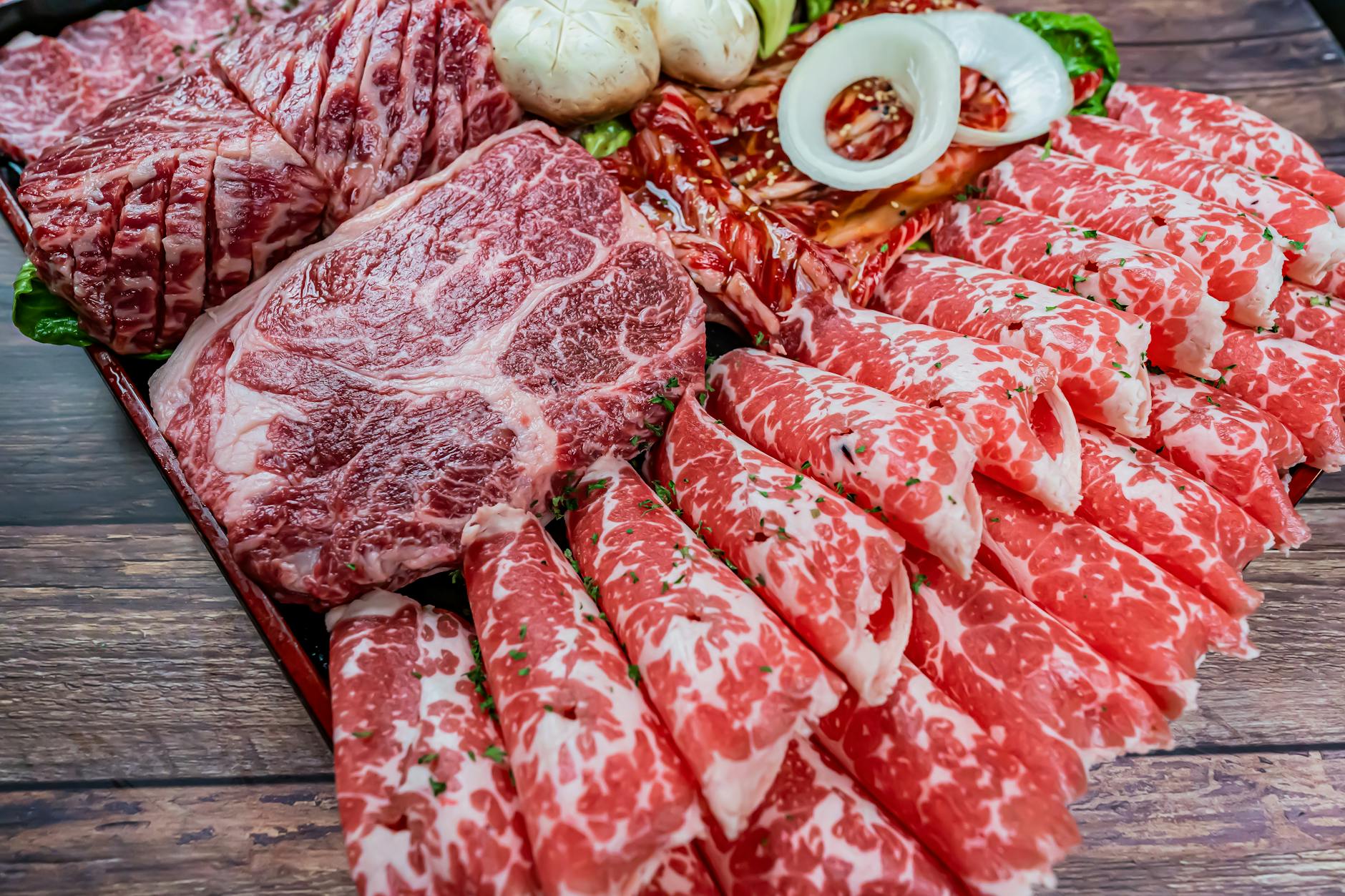High-End Wagyu Reaches Consumers Through Multiple Hands — The Vital Role of Fattening Farms and the Rise of “Contract Rearing”
Delivering premium Wagyu involves a complex chain of processes and individuals—but none more pivotal than the fattening farms, which oversee the final stage before cattle are processed for beef. The fat content, muscle firmness, physique, and overall health of Japanese Wagyu are largely determined during this fattening phase. In recent years, these farms have increasingly adopted a “contract rearing” model, forming the backbone of stable supply for branded Wagyu. The close, strategic relationship between fattening farmers and brand owners is essential to maintaining consistent excellence.
What is Contract Rearing?
In this model, ownership of the cattle remains with brand owners, distributors, or sales companies, while fattening farms are entrusted—rather than owning the cattle themselves—to raise them under contract. Historically, farmers bought calves independently, raised them at their own risk, and sold them—sometimes with variable success. However, as farms have scaled up and risk management has become a priority, contract-based systems have surged. This shift is especially pronounced in the high-quality branded Wagyu sector.“
Key Features and Benefits:
-
Non-ownership but full responsibility: Fattening farms follow strict guidelines—using specified feed, adhering to precise rearing schedules, and meeting weight targets—all set forth by the contracting brand.
-
Performance-driven compensation: After slaughter, farms receive fees and bonuses based on grading, weight, and yield. In effect, higher quality equals higher income, aligning farmer incentives directly with product excellence.
Through this arrangement, brand owners ensure consistency from rearing to plate, while farms benefit from financial clarity and technical support. Together, they form a symbiotic ecosystem that reinforces the prestige and quality consumers expect from premium Wagyu.

Rising prominence of contract-rearing systems in Wagyu production stems from several strategic factors. Foremost among these is the surging cost of Wagyu calves, which typically now range between ¥500,000 and ¥1,000,000. For small-scale farmers, this represents a significant financial hurdle. Moreover, market volatility—from fluctuating feed costs to disease outbreaks and unpredictable beef prices—has intensified operational risk. Against this backdrop, contract rearing has emerged as a preferred option, enabling farmers to mitigate financial exposure and secure predictable returns. By outsourcing investment and stabilizing income, this model offers a sustainable pathway for both producers and premium Wagyu brands.
For premium Wagyu brands, this contract-rearing system is equally advantageous. It enables precise control over genetics and rearing standards, minimizing variability in quality—a critical factor in maintaining brand integrity. By centralizing data on breeding conditions and performance outcomes, brands can consistently reinforce and elevate their market value. In fact, many renowned Wagyu producers maintain long-term contracts with specialized fattening farms to ensure a steady and uniform supply. This model provides a stable production infrastructure, allowing brands to meet the exacting demands of discerning international clientele with confidence.
However, this structure is not without its challenges. Chief among them is the potential limitation of autonomy for fattening farmers. Since livestock are raised under contractual terms, there is often little room for discretion in areas such as feed formulation, medication, and environmental management. Many farmers express concern that these conditions restrict their ability to innovate or apply proprietary techniques developed through years of experience. Particularly for those who have invested decades in refining their husbandry methods, there is resistance to seeing their expertise confined within the rigid framework of contractual obligations.
Additionally, the terms of these contracts can sometimes lead to dissatisfaction regarding profit distribution. Even when a farmer delivers top-graded Wagyu, if the remuneration is fixed, the structure risks undervaluing their efforts and craftsmanship. The more control a brand exerts to maintain quality and consistency, the greater the operational burden on the farm—often without a commensurate increase in compensation. Striking a balance between brand integrity and equitable rewards for producers remains a pressing challenge.
At the same time, a growing number of farmers are seeking to assert their individuality—even within contract-rearing arrangements. While retaining relationships with brand owners, they are increasingly shipping cattle under their own farm labels, engaging in direct farm-to-consumer sales, and promoting ethical rearing methods. These initiatives contribute to a sense of differentiation and are helping farmers evolve from mere subcontractors into collaborative co-creators of the brand.
Contract rearing has become indispensable in modern Wagyu production—achieving both risk mitigation and quality consistency. However, its success lies not in hierarchical control, but in true partnership between producers and brands. Behind every plate of premium Wagyu lies a sophisticatedly designed collaboration, the delicate balance of which is essential to delivering the celebrated taste we cherish.




